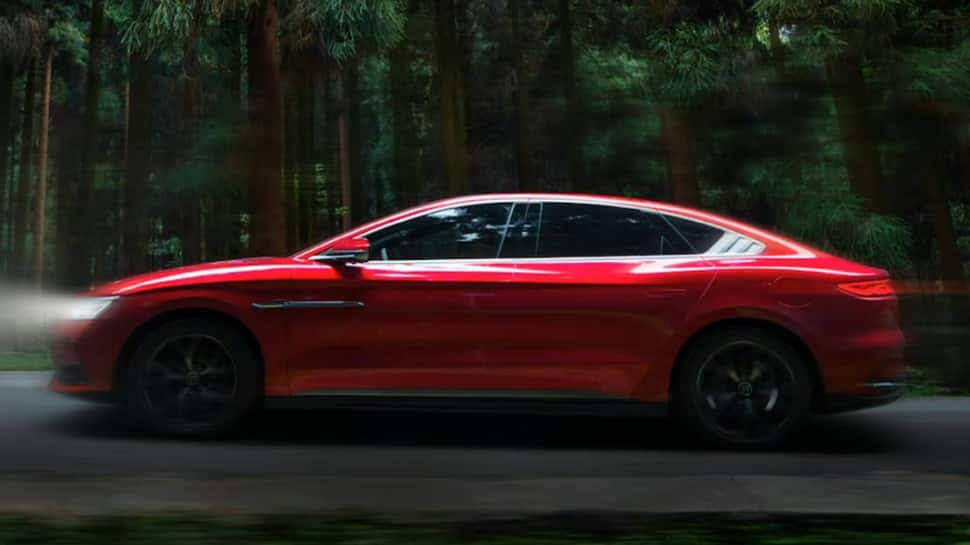Navigating The Complexities: BMW, Porsche, And The Uncertainties Of The Chinese Automotive Market

Table of Contents
The Allure and Challenges of the Chinese Luxury Car Market
The allure of the Chinese luxury car market is undeniable. Fueled by a burgeoning affluent middle class, demand for high-end vehicles is exploding. However, this lucrative market presents significant challenges. Intense competition exists, not only from established international brands like Mercedes-Benz and Audi, but also from rapidly growing domestic players like Nio and XPeng, who are making significant inroads into the electric vehicle sector.
-
Exploding Demand: The rise of a wealthy Chinese middle class, with increased disposable income and a desire for luxury goods, has significantly boosted luxury car sales in China. This demographic is a key driver for growth in the high-end vehicles segment.
-
Fierce Competition: The Chinese luxury car market is a battleground. International brands face pressure not only from each other but also from increasingly sophisticated domestic competitors offering competitive pricing and innovative technology.
-
Navigating the Regulatory Landscape: Government regulations, import tariffs, and ever-changing policies create complexities for international players. Understanding and adapting to these dynamics is crucial for success.
-
Cultural Nuances: Chinese consumer preferences are unique and influenced by cultural factors. Marketing strategies must resonate with these cultural nuances to be effective. Brand image and reputation are paramount.
-
Shifting Government Policies: Government policies aimed at promoting domestic brands and addressing environmental concerns continue to shape the landscape of the Chinese auto industry, requiring constant adaptation from international players.
BMW's Strategy in the Chinese Market
BMW has a long-standing presence in China and has implemented a comprehensive strategy focused on localization and meeting the specific demands of the Chinese consumer. Their strategy is multifaceted:
-
Long-Term Investment & Localization: BMW has invested heavily in local production facilities, enabling them to better respond to market demands and avoid high import tariffs. This commitment demonstrates a long-term perspective in the Chinese market.
-
Tailored Product Offerings: BMW produces vehicles specifically tailored to the preferences of Chinese consumers, considering factors such as size, features, and technology. They are actively catering to the preferences of the target demographics.
-
Electric Vehicle Push: Recognizing the burgeoning electric vehicle (EV) market in China, BMW is aggressively expanding its range of EVs, positioning itself as a leader in this growing segment of the Chinese auto industry.
-
Targeted Marketing: BMW employs sophisticated marketing strategies tailored to resonate with diverse Chinese demographics, leveraging digital platforms and traditional media to reach their target audiences.
-
Market Segmentation: BMW successfully targets various market segments, from younger, tech-savvy buyers to established, affluent consumers, ensuring broad market penetration.
Porsche's Approach to the Chinese Market
Porsche's strategy in China focuses on maintaining its prestigious brand image while adapting to the market's unique characteristics:
-
Prestige & Exclusivity: Porsche prioritizes preserving its brand's exclusivity and prestige, catering to a discerning clientele who value luxury and performance.
-
SUV Success: The popularity of Porsche's SUV models, particularly the Cayenne and Macan, has been instrumental to their success in the Chinese market, appealing to a wider range of consumers than their traditional sports cars.
-
Digital Marketing Prowess: Porsche leverages digital marketing and social media platforms effectively to connect with Chinese consumers, creating engaging content and building brand awareness.
-
Personalized Customer Experience: Porsche emphasizes building strong customer relationships by providing personalized experiences and exceptional after-sales service, fostering brand loyalty.
-
Strategic Partnerships: Porsche has forged strategic partnerships to expand its reach and enhance its market penetration in the Chinese market.
Comparing and Contrasting BMW and Porsche's Strategies
BMW and Porsche, while both luxury brands, adopt distinct strategies in the Chinese automotive market. BMW focuses on broad market penetration through localization, diversified product offerings including EVs, and targeted marketing. Porsche prioritizes maintaining brand exclusivity while leveraging its successful SUV models and digital marketing. Both, however, demonstrate the critical need for adaptation and understanding of the unique dynamics of the Chinese consumer and regulatory landscape. Their success reflects the effectiveness of tailored approaches in navigating the complexities of the market.
Conclusion
The Chinese automotive market's inherent complexities—intense competition, evolving consumer preferences, and dynamic government regulations—demand a nuanced approach. BMW and Porsche, despite their differing strategies, highlight the critical need for adaptation and innovation to thrive. Their experiences offer valuable lessons for other international brands looking to penetrate this rapidly evolving landscape. Understanding the intricacies of navigating the Chinese automotive market is crucial for success. Further research into specific market segments and consumer trends will provide a more comprehensive understanding of this dynamic and challenging environment. Continue your exploration of the Chinese auto industry and stay informed about the latest developments in the luxury car market in China.

Featured Posts
-
 Ace Your Private Credit Job Interview 5 Essential Tips
Apr 29, 2025
Ace Your Private Credit Job Interview 5 Essential Tips
Apr 29, 2025 -
 Ftc Appeals Microsoft Activision Merger Ruling
Apr 29, 2025
Ftc Appeals Microsoft Activision Merger Ruling
Apr 29, 2025 -
 The Countrys Emerging Business Hubs A Geographic Analysis
Apr 29, 2025
The Countrys Emerging Business Hubs A Geographic Analysis
Apr 29, 2025 -
 Move Over Quinoa The New Superfood Revolution
Apr 29, 2025
Move Over Quinoa The New Superfood Revolution
Apr 29, 2025 -
 Rock Throwing Incident Results In Murder Charge For Teen
Apr 29, 2025
Rock Throwing Incident Results In Murder Charge For Teen
Apr 29, 2025
Latest Posts
-
 Is Ai Really Thinking Exploring The Limits Of Artificial Intelligence
Apr 29, 2025
Is Ai Really Thinking Exploring The Limits Of Artificial Intelligence
Apr 29, 2025 -
 The Illusion Of Intelligence How Ai Mimics Thinking
Apr 29, 2025
The Illusion Of Intelligence How Ai Mimics Thinking
Apr 29, 2025 -
 Understanding Ais Thought Processes A Surprisingly Simple Reality
Apr 29, 2025
Understanding Ais Thought Processes A Surprisingly Simple Reality
Apr 29, 2025 -
 Ais Limited Thinking A Closer Look At Current Capabilities
Apr 29, 2025
Ais Limited Thinking A Closer Look At Current Capabilities
Apr 29, 2025 -
 We Now Know How Ai Thinks And Its Barely Thinking At All
Apr 29, 2025
We Now Know How Ai Thinks And Its Barely Thinking At All
Apr 29, 2025
